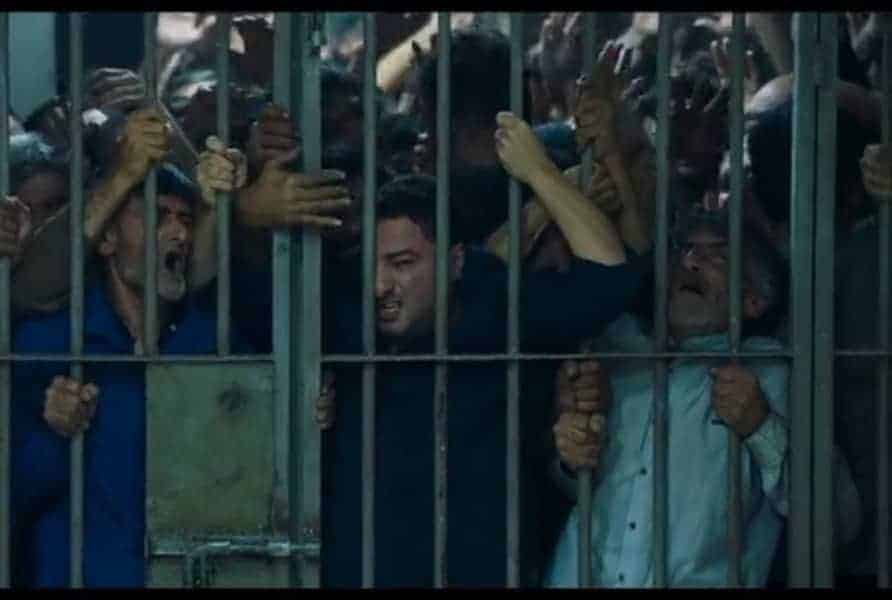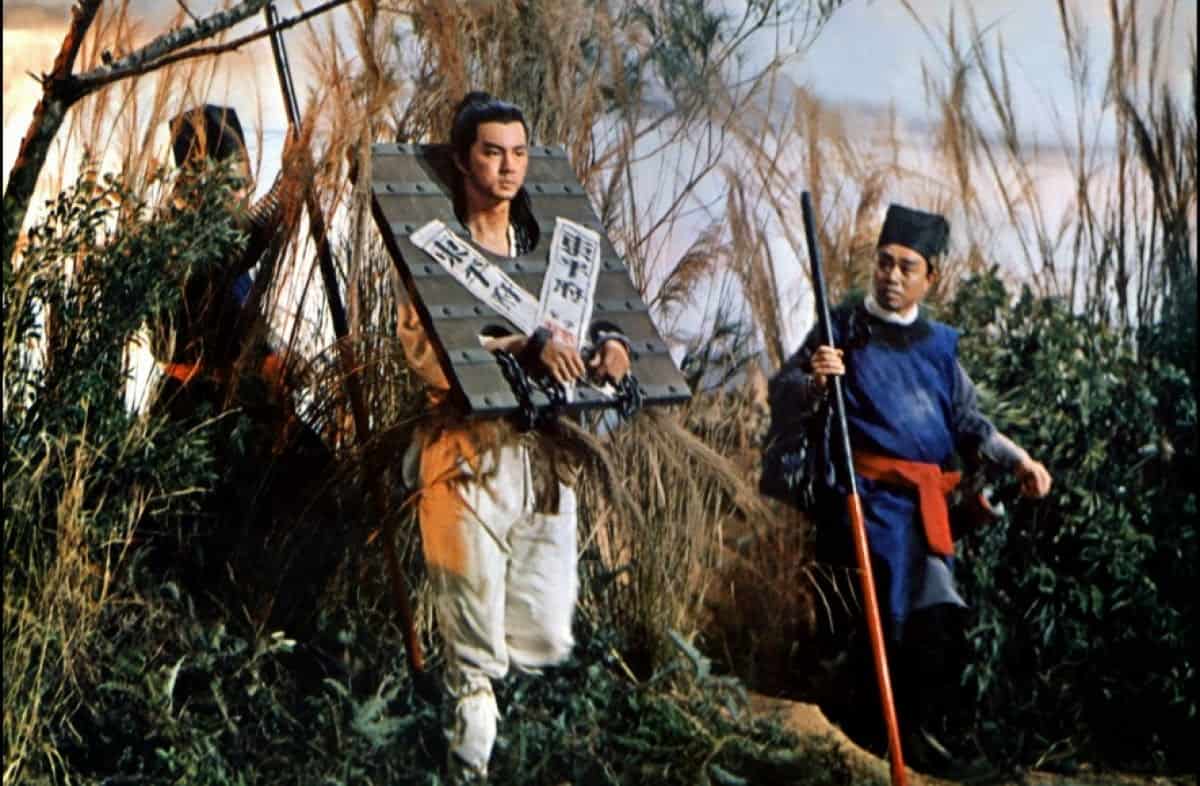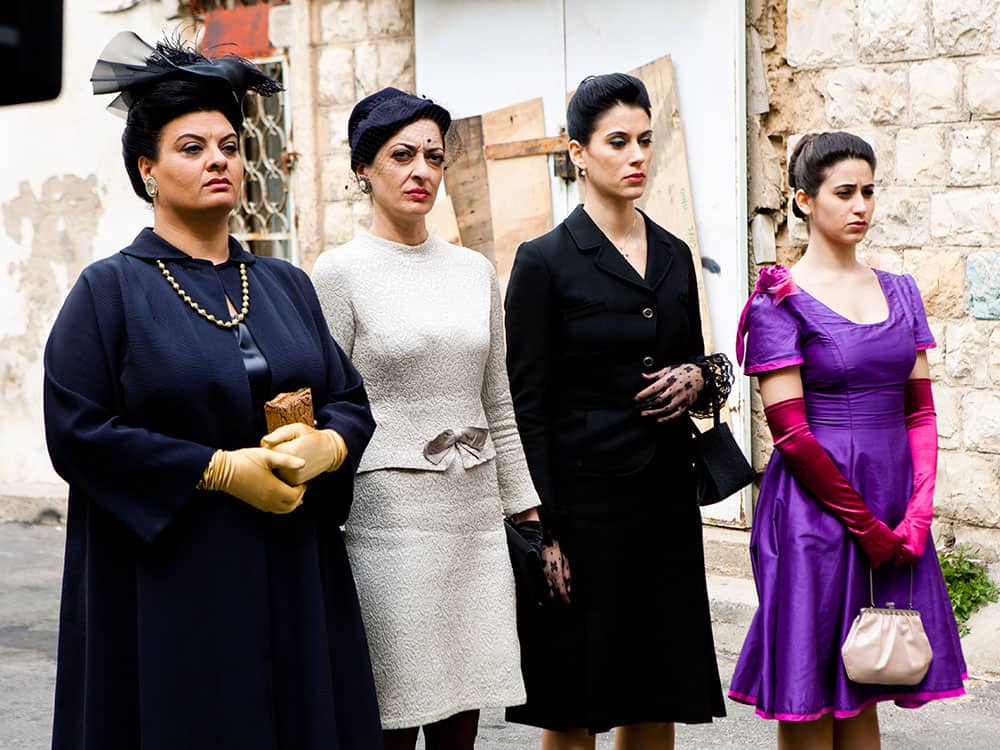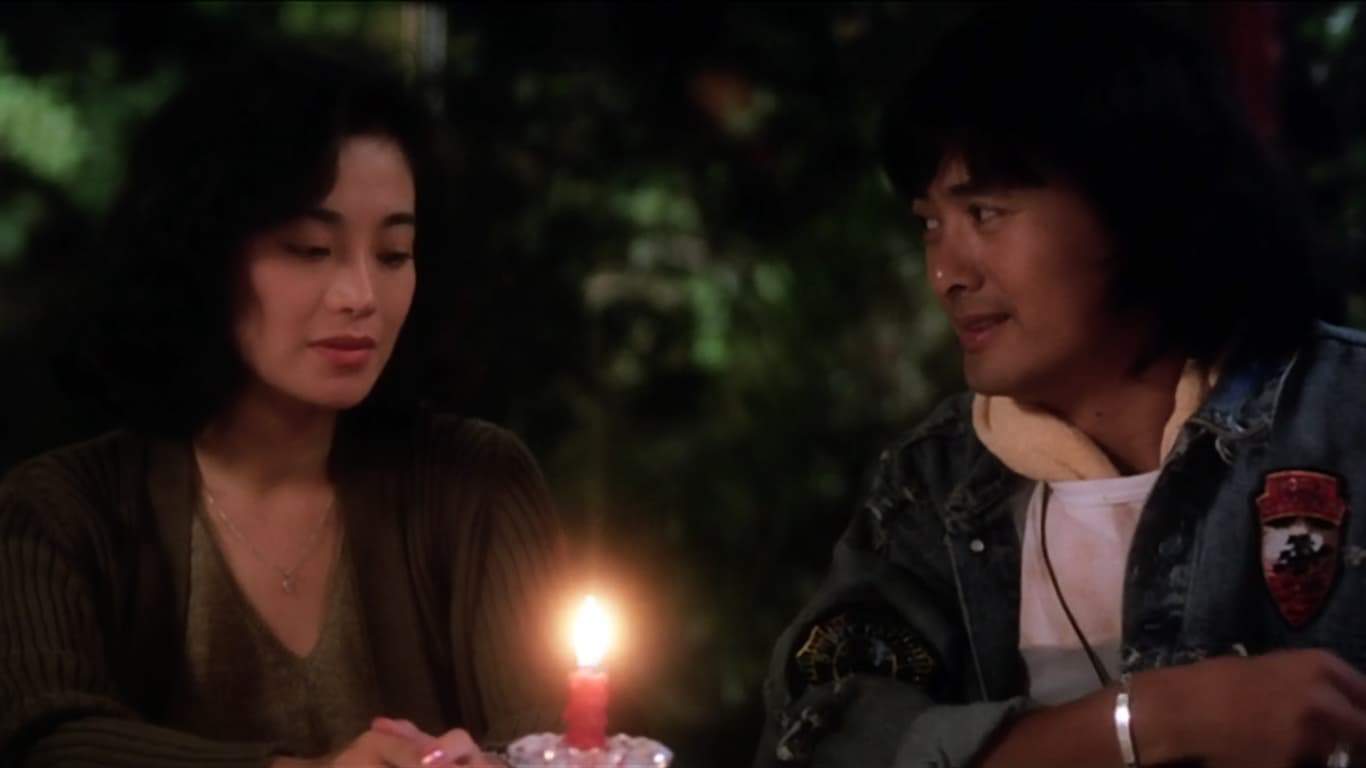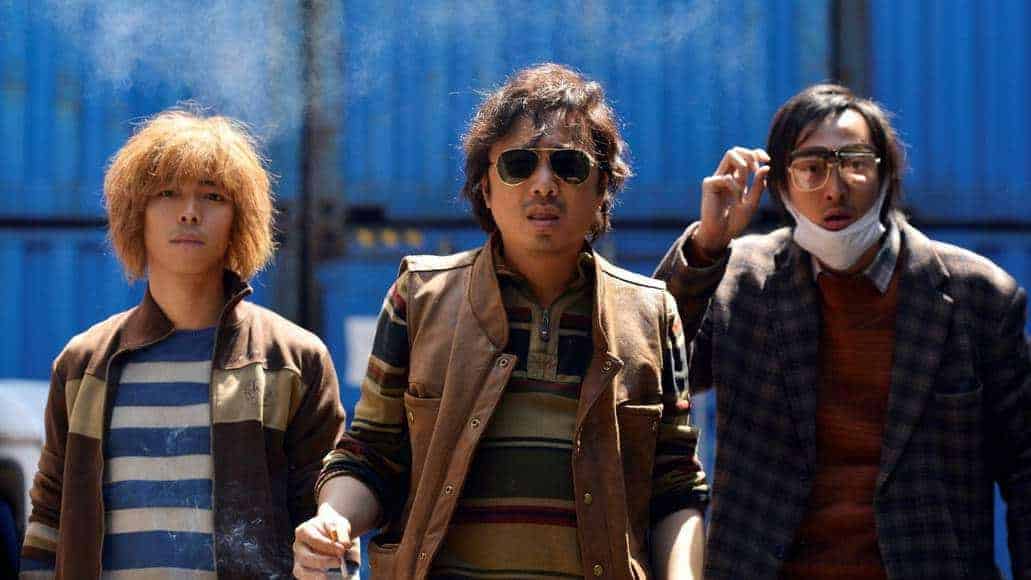By Wally Adams
What comes to mind when thinking of Iranian cinema? Abstract, poetic rumination on art or politics? Deeply contemplative social realism on the plight of women or children? Austere family or working man's dramas? Or the outright unique and undefinable? Such artistically creative, innovative cinema is indeed the main reason international audiences have been drawn to Iranian cinema since the 1980s with steadily increasing exposure and accolades from a Palme d'Or in 1997 (Kiarostami) to a Golden Lion in 2000 (Panahi) to Best Foreign Film Oscars in 2011 and 2016 (Farhadi) — actually quite amazing achievements for a country that had a film industry and general film budgets as relatively small as Iran's.
“Just 6.5” is screening at San Diego Asian Film Festival
That's all well and good. But it brings the more inquisitive or those not fully disposed to arthouse cinema to wonder: doesn't Iran ever make, like, normal movies too?
With the way the international film circuit has operated for the last couple of decades, one certainly couldn't be blamed for thinking otherwise. But really, like most other places in the world, Iran's most popular local movies actually tend to be comedies followed by family dramas somewhat more in tune with the internationally known ones. It should also be noted that unlike most other countries in the developing world (excepting a few places with massive industries like India), Iranians by and large actually like watching their own movies. But upstart 30-year-old director Saeed Roustayi is bucking both national and international trends by making dead-serious dramas that still reach both box office and critical success. After his debut “Eternity +1 Day” focusing on a family affected by drugs, he's gotten heavier into the latter topic but this time with something a little closer to regular genre entertainment with “Just 6.5” — and managed to break box-office records with it.
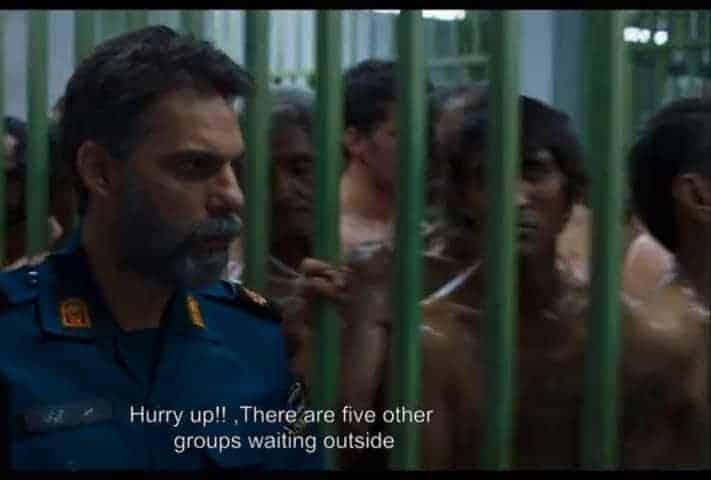
Sergeant Majidi Samad (Payman Maãdi, “A Separation”) rules over his subordinates in the police force and even more so his prisoners and suspects with an iron fist. Under pressure after two botched drug busts (one getting the suspect but not the drugs, one the drugs without the suspect), he's hell-bent on tracking down and apprehending the most wanted drug lord around, Nasser Khakzad (Navid Mohammadzadeh). Samad's closest assistant Hamid (Houman Kiai) is also quite determined to reach the bottom of the dragnet for his own reasons, as he particularly blames a dealer known as “Hassan the Cow” for killing his son during an escape.
A Drug War ideologue, Samad and his team set up a relentless and blatantly rule-bending dragnet, including mass-arresting and detaining suspects and imprisoning them in brutally crammed conditions. And the most vulnerable suspects for exploitation from criminals just makes them even riper for exploitation from cops. Their main strategy? “We'll go after every user and homeless person we know” to hopefully climb up to the big fish. Also targets are anyone suspected (or guessed) as having any dealings with Nasser or having any kinds of relationships with him — including his once-fiancee Elham (Parinaz Izadyar).
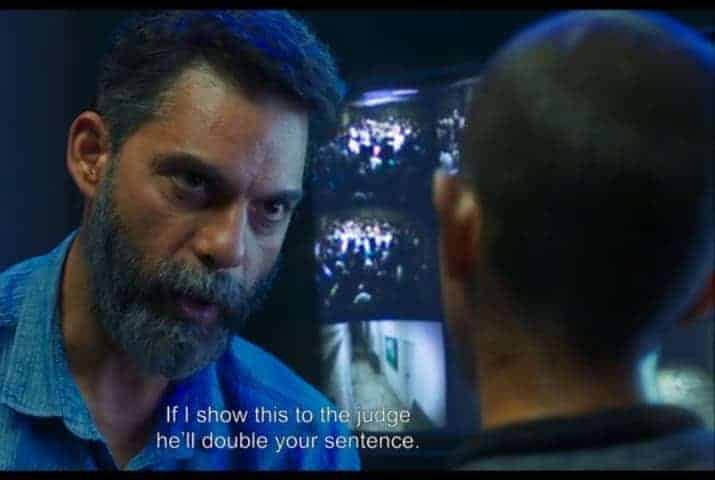
Even dirtier than “Dirty Harry” and maybe even badder than the “Bad Lieutenant” (as unlike him, Samad is fearfully and efficiently corrupt rather than idly and incompetently so), “6.5” very effectively establishes Sergeant Majidi not just as the man you love to hate but a wider embodiment of unchecked power and unquestionable authority altogether. A cop with a distinctly Machiavellian outlook towards law enforcement, he clearly relishes in projecting his power and doesn't hesitate to terrorize men, women and even children not so much at a whim as on a hunch. But as a character he can be charmingly contemptible too, turning to pestering sarcasm to break down his targets as readily as force or intimidation.
Equally responsible for bringing his character to such deliciously contemptible life is the excellent performance from Maãdi. An Iranian-American dual citizen who's starred in memorable productions from both countries (“About Eily” and “A Separation” in Iran, “Camp X-Ray” and TV's “The Night Of” in the US), here his presence is very commanding literally and figuratively in a role more visceral if less subtle than his usual flawed but sympathetic roles elsewhere. Izadyar with a smaller role also carries her's off quite well as a woman being conveniently exploited and threatened by both sides of the law.
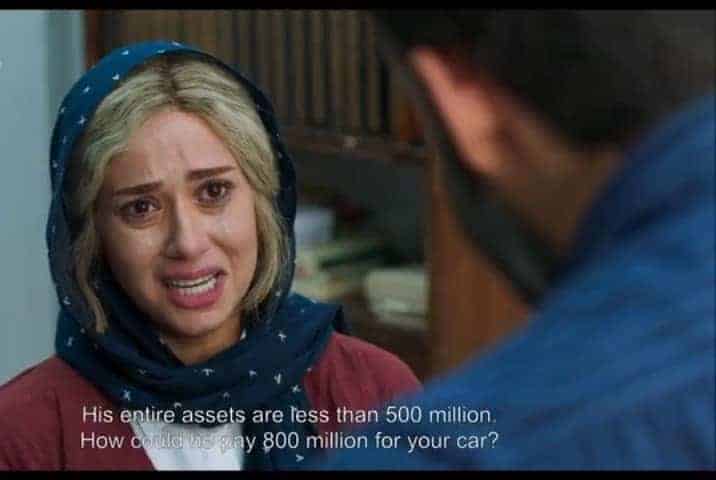
In the early stages, Samad's heavy-handed and blatantly rule-bending methods appear on the surface to consistently produce results. And for that, an inattentive viewing of “6.5” could lead one to believe it rests on a dubiously “Zero Dark Thirty”-esque tacit endorsement of suspect and prisoner abuse/torture.
But as the film progresses, it becomes more and more clear that “6.5” isn't trying to create or dramatize heroes or chronicle great deeds. Even as a police/crime drama (and a police-crime drama) it doesn't strive to stay within confines. It goes a little bit through the genre tropes of stings, chases, tense interrogations, pulling guns here and there and even an explosion. But these are really just the ends and fringes of what's still a distinctly Persian tapestry. So don't expect to see any big shootouts or people climbing to the top of a tower for a big climatic showdown here.
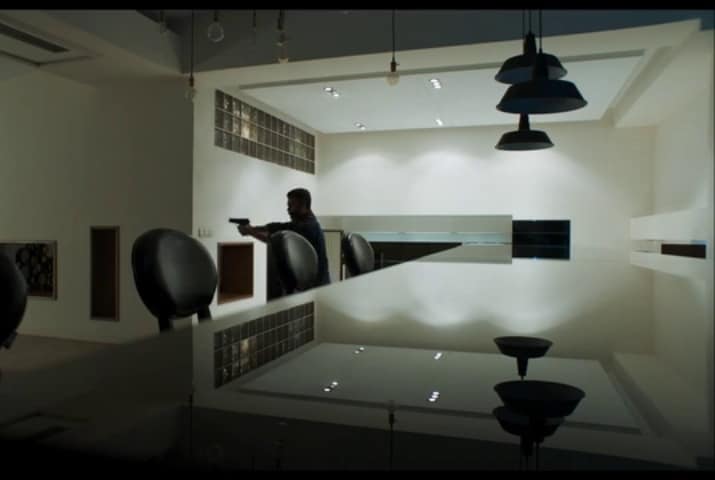
It's understood that director Saeed Roustayi had a whole lot of things he wanted to say and call attention to with this film and wasn't too concerned with satisfying mainstream genre conventions for what he was working with. Nevertheless, for a film with a protagonist that moves to tackle a violent enterprise head-on, basks in abusing and provoking people, makes many enemies and talks the absolutely inordinate amounts of sh*t that he does (with the formal criminal characters doing a decent share as well), one could still reasonably expect and be slightly disappointed by the relative lack of raw action and suspense. While still managing to be incredibly taut through much of the 1st half and near the end, much of the 2nd half of this 130-minute film in particular gets rather excessively talky and physically stagnant.
What “6.5” is far more concerned and successful with, however, is delving into deeper and more acutely pertinent questions about the human toll of the drug business from multiple angles. And it keeps a sharp awareness how every side of the drug cycle — the users, the dealers, the suppliers and law enforcement — all keep or need varying degrees of tension and cooperation with each other. For that there are also serious class tensions of sorts on both sides, with officers seeming ever on the ready to intimidate or throw their subordinates under the police van when needed and users, dealers and suppliers a little more predictably finding each other expendable (with the higher having the power to assassinate and the lower having power to snitch which will be to the same result in Iran if their bosses are caught for it).
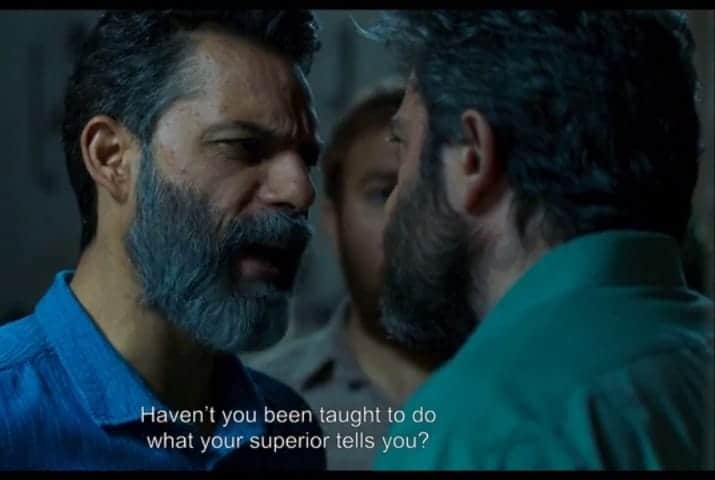
That being said, even as Iran has a general image in the West as a country that never tolerates significant dissent or questioning of its establishment, “6.5” actually tackles the issue of its Drug War more potently, poignantly and pessimistically than most recent Hollywood movies dared to. It should be noted, Iran indeed has some of the most ruthlessly harsh penalties for drug offenses in the world (though several other Asian countries from China and Singapore even to democracies like Indonesia and [extrajudicially] the Philippines are similar or not far behind).
That makes this film all the more commendable not only for asking tough questions about just how just “justice” is (and not just through Samad, who starts seeming more and more like a symptom of a much bigger ailment even if an egregious one) with corrupt individuals and systems, but challenging us to fully understand and empathize with the users and even dealers. After all, the Drug War is shown is have to the power to physically/psychologically harm, morally corrupt and socially defile user, dealer and lawman alike. Thus nearly all of them can be victimized. But the biggest victims tend to end up being those at the expendable lower rung, just as all three have the select very few big “winners” from it.
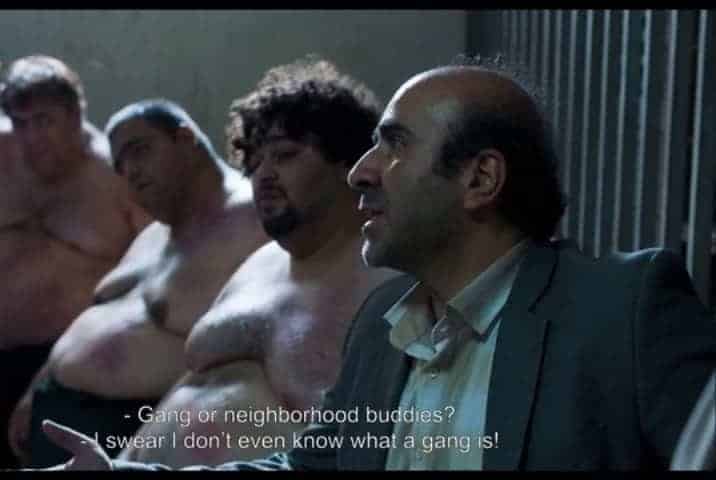
So in the end, “6.5”, even in unusually well-tailored commercial clothing, continues the rich traditions of Iranian cinema quite well, drawing insights into human conflict, complex lines of moral ambiguity and multilayered dimensions around an apparently simple plot. While it's true that it could use a little more vigor or at least breaking up in places, all in all it leaves Iranian cinema fans worldwide with more to look forward to for the development of genre cinema in an industry branching further out from its niche status.
Side note: The movie's title is just as caustic as its protagonist, as “just 6.5” doubles (beyond a drug-measuring reference) as an estimate of how many millions of drug users are in Iran, thanks to the resounding success of the methods employed against them.
“You think I'll let your wife go just for the sake of your kids? What'll the judge read? A report. And who writes the report? ME!”


